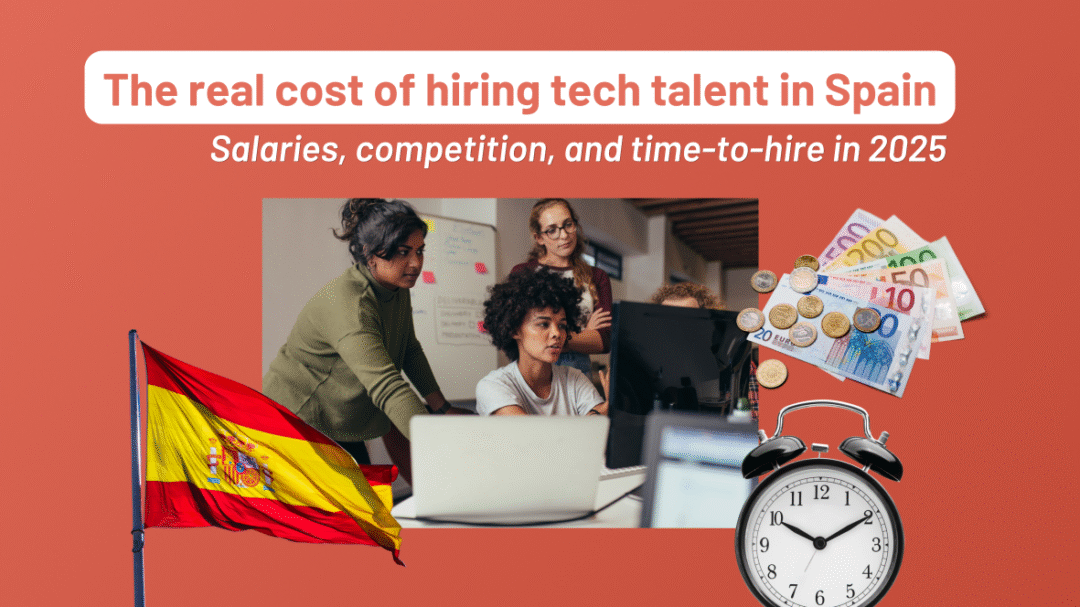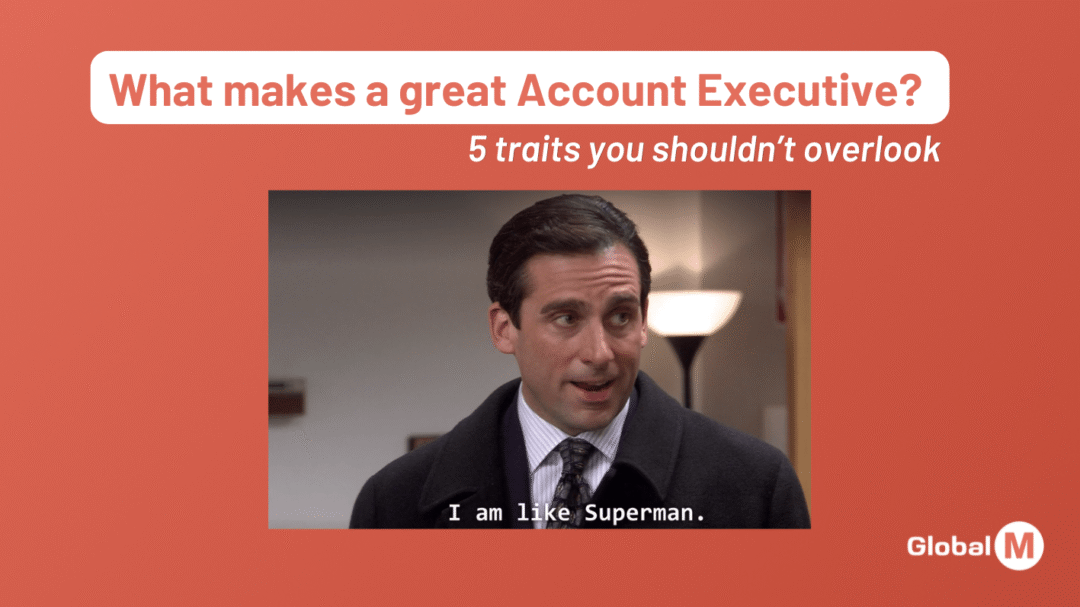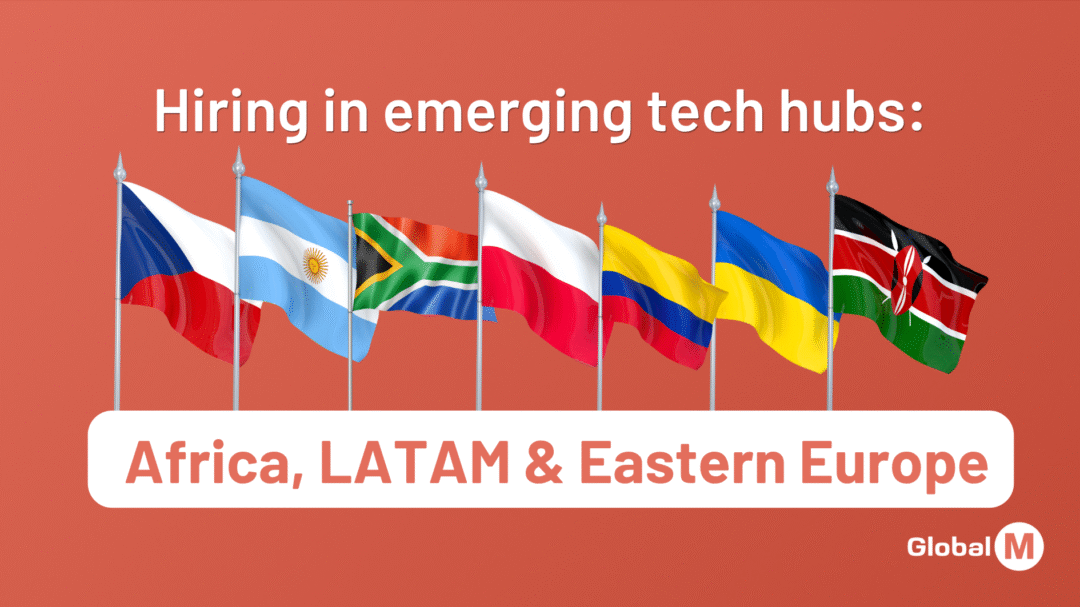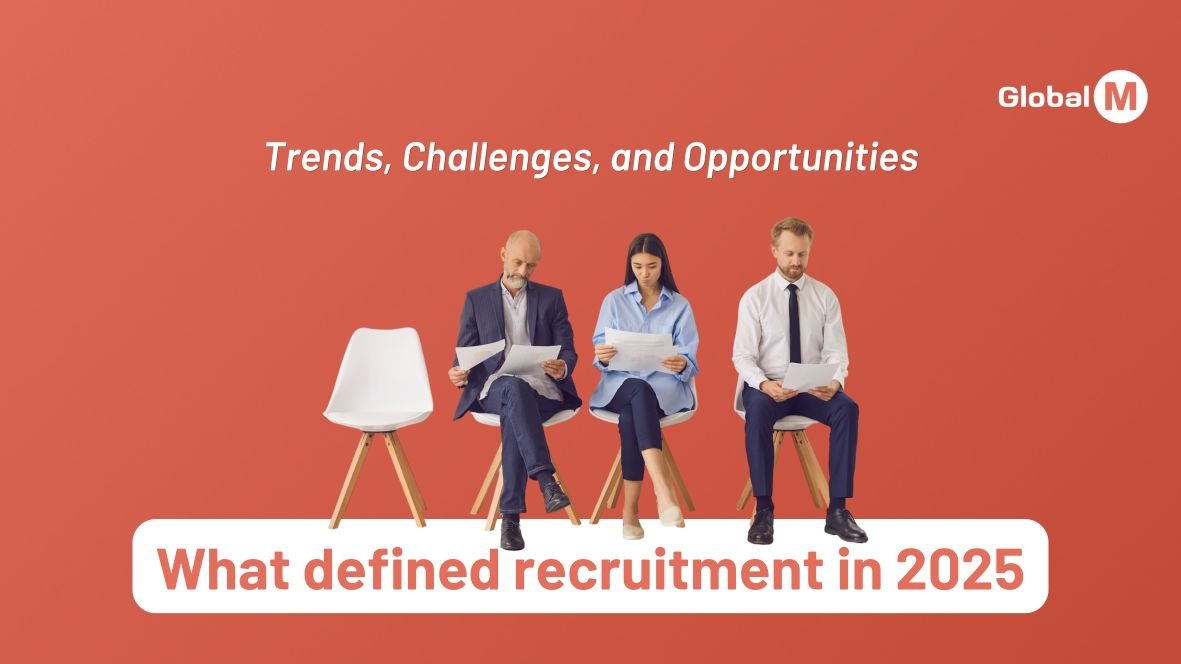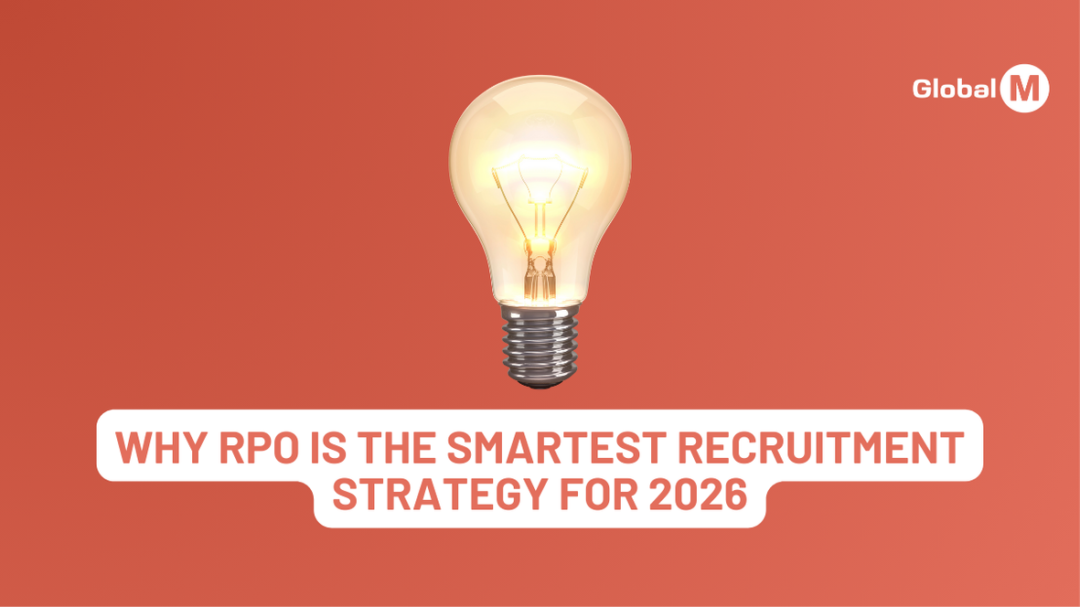
El blog de Global M
Lo que definió la contratación en 2025: Tendencias, retos y oportunidades
España se ha convertido rápidamente en uno de los centros más atractivos de Europa para la ingeniería de software y el talento digital. Con fuertes ecosistemas en Barcelona, Madrid, Valencia y Málaga, las empresas internacionales recurren cada vez más a España para crear equipos de ingeniería rentables y de alta calidad.
Pero, ¿cuánto costará realmente contratar personal tecnológico en España en 2025 y cómo de competitivo es el mercado?
Como consultora de selección de personal con amplia experiencia en la contratación de equipos tecnológicos para startups y scale-ups en toda Europa, incluida España, Global M ha recopilado información real del mercado para ayudar a las empresas a planificar y ampliar sus equipos de manera eficiente.
Qué ha definido hasta ahora la contratación en 2025
1. La contratación basada en las competencias tomó la delantera
Este año se ha producido un cambio importante hacia contratación por competencias. Cada vez más empresas dejaron de exigir titulaciones y empezaron a dar prioridad a la capacidad técnica, la adaptabilidad y el potencial. Especialmente en el sector tecnológico, la experiencia práctica y las aptitudes demostrables importan mucho más que la educación formal. Para los reclutadores, esto significaba mirar más allá de los CV tradicionales y encontrar candidatos que pudieran hacer el trabajo, no sólo hablar de ello.
2. La IA se convirtió en una herramienta de contratación cotidiana
La IA sigue transformando la selección de personal: desde la búsqueda y selección hasta la programación de entrevistas. Los reclutadores utilizan cada vez más la automatización para ahorrar tiempo y mejorar el emparejamiento de candidatos. Sin embargo, la adopción también trajo nuevos retos: equilibrar la eficiencia con un toque personal, mantener la imparcialidad y generar confianza en los candidatos que desconfían de las decisiones impulsadas por la IA. Los ganadores en 2025 fueron los que combinaron tecnología con un enfoque humano.
3. Contratación más inteligente, no más rápida
A pesar de la continua demanda de talentos, en 2025 se registró una mayor crecimiento prudente. Las start-ups y las scale-ups se centraron en la contratación sostenible, los presupuestos más ajustados y el ajuste a largo plazo en lugar de los objetivos de plantilla. La contratación se hizo más estratégica: integración de datos, optimización de procesos y rentabilidad en cada contratación. Las empresas no dejaron de contratar, sino que simplemente se convirtió en más estratégico sobre cómo lo hicieron.
Retos de los equipos de contratación en 2025
A pesar de las interesantes tendencias que han marcado la contratación este año, desde la contratación basada en competencias hasta la eficiencia impulsada por la IA, los reclutadores y los equipos de contratación se enfrentaron a sus propios retos. La adaptación a las nuevas tecnologías, los presupuestos más ajustados y la competencia por los mejores talentos pusieron a prueba la agilidad del sector. Estos son los tres principales obstáculos que destacaron en 2025:
1. Equilibrar la eficiencia de la IA con el toque humano
Aunque las herramientas de IA ayudaron a automatizar la contratación y la selección, muchos equipos lucharon por mantener la elemento humano en la contratación. Los candidatos siguen esperando comunicación personal, transparencia y empatía, cosas que los algoritmos no pueden reproducir. Los reclutadores pasaron gran parte de 2025 aprendiendo a utilizar la IA como un herramienta de apoyo, La tecnología no sustituye a la conexión real, sino que la mejora.
2. Contratación con presupuestos más ajustados y equipos más reducidos
La incertidumbre económica se tradujo en equipos internos de talento más reducidos y presupuestos de contratación reducidos en muchas empresas de nueva creación y de escala. La atención se desplazó de la velocidad a contratación rentable y de alto impacto. Esto empujó a más empresas hacia modelos de RPO y contratación integrada que ofrecían flexibilidad, escalabilidad y mejor valor a largo plazo, un cambio que hemos visto de primera mano en Global M.
3. Atraer a los mejores talentos en un mercado competitivo
A pesar de la ralentización de la contratación en algunos sectores, la lucha por la talento tecnológico cualificado siguió siendo intensa. Los puestos en IA, datos y ciberseguridad eran especialmente difíciles de cubrir. Los candidatos tenían mayores expectativas de flexibilidad, crecimiento y alineación con los valores de la empresa. Para competir, los empleadores tuvieron que reforzar sus marca de empleador y ofrezca una experiencia excepcional al candidato desde el primer contacto hasta la incorporación.
Grandes noticias del sector y cambios en 2025
A medida que el panorama de la contratación sigue evolucionando, varios acontecimientos clave han dado forma al sector este año:
1. La contratación impulsada por la IA cobra impulso
La inteligencia artificial se ha convertido en la piedra angular de las estrategias de contratación modernas. Empresas como Capita están abriendo camino implantando sistemas basados en IA para agilizar los procesos de contratación. La colaboración de Capita con Salesforce para lanzar un sistema de contratación impulsado por IA tiene como objetivo reducir significativamente los tiempos de contratación mediante la automatización de más de 200 tareas, lo que permite a los reclutadores centrarse más en los aspectos estratégicos de la contratación.
2. La incertidumbre económica afecta a la contratación
El mercado laboral mundial está experimentando su caída más prolongada desde el año 2000, y las empresas muestran cautela en sus prácticas de contratación. Las empresas de contratación, como Hays, han registrado importantes descensos en sus beneficios debido a la menor demanda de contratos temporales y fijos. Esta incertidumbre económica ha llevado a las empresas a adoptar un enfoque más cauteloso a la hora de contratar, centrándose en retener el talento existente y siendo selectivas en las nuevas contrataciones.
3. Cambios estratégicos en las prácticas de contratación
En respuesta a estos retos, las empresas de selección de personal están evolucionando desde los métodos tradicionales de contratación hacia asociaciones más estratégicas con los clientes. Las empresas buscan cada vez más servicios de contratación que ofrezcan capacidades de consultoría, gestión de proyectos y búsqueda de directivos. Este cambio refleja una tendencia más amplia de los reclutadores a posicionarse como socios estratégicos, proporcionando ideas y soluciones a medida para satisfacer las necesidades específicas de sus clientes.
Hasta ahora, 2025 ha sido un año de transformación en la contratación. La contratación basada en competencias y los procesos impulsados por la IA están remodelando la forma en que las empresas encuentran y evalúan el talento, mientras que la incertidumbre económica ha hecho que la contratación sea más estratégica y mesurada. Los reclutadores se han enfrentado a retos como equilibrar la tecnología con el toque humano, gestionar presupuestos más ajustados y competir por los mejores talentos. Al mismo tiempo, el sector está evolucionando para convertirse en un socio estratégico de las empresas, ayudando a las organizaciones no sólo a cubrir puestos, sino a crear equipos resistentes y preparados para el futuro.
20,000+
Suscriptores activos
Manténgase a la vanguardia en el mundo en constante evolución de la contratación de tecnología. Nuestro boletín lo mantiene al tanto de las últimas tendencias de la industria y brinda información valiosa tanto para las empresas como para quienes buscan trabajo.

Sigue leyendo
Más noticias, información y consejos

